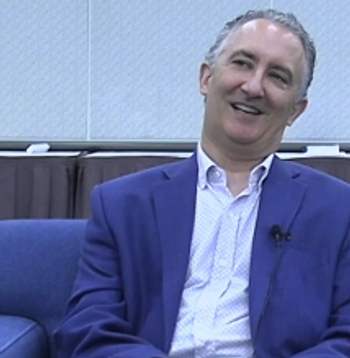
DSM-5: If You Don't Like the Effects, Look at the Causes
It is clear that the leadership of DSM-IV, and of DSM-III before it, views psychiatric diagnosis in the DSM system as something that should be based on “pragmatism.”
This post is a response to
The former leader of DSM-IV doesn't like the effects of DSM-5. This is rather like a Freudian criticizing a Jungian: DSM-IV and DSM-5 are variations on a theme. Here is important context: The former leadership of DSM-IV, adamant in its critique of DSM-5's problems, is completely committed to the cause of those failures.
(NB: I had not commented on this matter for over 2 years in the
In earlier discussions, it is clear that the leadership of DSM-IV, and of DSM-III before it, views psychiatric diagnosis in the DSM system as something that should be based on “pragmatism.” This means making practical judgments about what is best for the psychiatric profession, first of all, and then for social, economic, or other reasons. We should change criteria, said my colleague explicitly, so that clinicians should be induced to use more or less of some medications (such as antipsychotics, less, versus antidepressants, more) based on the beliefs of the leadership of the DSM task forces about the risks and benefits of those medications.
It is exactly this “pragmatism” that is the root of the problems of DSM-5. If you don’t like DSM-5, you shouldn’t like DSM-IV. Here's why:
A member of the DSM-IV task force told me that the leader of DSM-IV addressed the members of a subgroup and said that in addition to their scientific evaluation of the material there, they should keep in mind 3 overriding principles:
(1) To make no changes unless the scientific evidence was extremely strong (ie, DSM conservatism).
(2) To make no changes that would lead to radical changes in the document (DSM conservatism again), and
(3) To make no changes that would harm insurance reimbursement to clinicians (economics).
Perhaps the former leader of DSM-IV can confirm publicly if these were his instructions. If so, we can see that science plays second fiddle in DSM revisions. Conservatism-not wanting to make changes for the sake of not wanting to make changes-and economics come first. Perhaps this is unavoidable. DSM may be more like science policy than science. Political leaders in a profession need to make judgments based on multiple factors, and science is only one of them.
The problem is that science has become the least of them.
I can agree with my colleague about many of his specific concerns in his top ten list (on the fallacy of temper dysregulation disorder, for instance), but the larger problem is otherwise: There will always be disagreements; some of us will prefer to cut the DSM pie one way and some the other, based on various “pragmatic”-economic, social, professional-considerations. But, all hyperbole about helping patients notwithstanding, we will not help anyone. We won't succeed in identifying diseases, finding their causes, and treating them effectively, unless science becomes a much higher priority than it has been.
This is the ultimate flaw of the DSM system:
Many people, including, it seems, the leadership of DSM-IV and DSM-5, have an unconscious postmodernist ideology. They distrust science; nosology leaders (like some of the leadership of DSM-IV) often have themselves been engaged in little, if any, scientific work. “Take the experts with a grain of salt” betrays a skepticism that, partly justified, can easily become an anti-scientific cynicism. Some readers may take this view to a nihilistic extreme, as did a national NPR science reporter with whom I once spoke. If they do, they share the same postmodernist ideology that has produced the DSM-5, which they criticize.
Unless we get beyond this anti-science extremism, we cannot progress.
When the DSM leadership-whether in the 3rd, 4th, or 5th revision-gerrymanders psychiatric definitions for professional purposes, nature will not follow suit, and our biology, genetic, and pharmacology studies will be doomed to fail, as they have in the past 3 decades.
This is a much sadder reality in psychiatry today than the APA Board of Trustees approval of DSM-5.
The generation of psychiatric leadership that gave us DSM-III, DSM-IV, and DSM-5 has had its day. The future will belong to new generations of psychiatrists who, we can hope, will think for themselves, without personal commitments to these errors of the past.
(PS: “First do no harm” is a pious slogan not to be found anywhere in the Hippocratic writings. It was
Editor's Note: This blog was originally published on Psychology Today at
Newsletter
Receive trusted psychiatric news, expert analysis, and clinical insights — subscribe today to support your practice and your patients.







